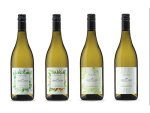New Zealand's support for India during its current global security crisis could be key to securing a free trade agreement with the nation, according to the head of one of the country's largest independent accounting firms.
Jay Changlani, a chartered accountant, chief executive of Orb360 and an executive board member of the India New Zealand Business Council, says NZ support in addressing areas such as India's international security concerns and providing work opportunities for their population can be leveraged to help gain access for many other products.
He believes the focus on including agricultural exports such as dairy has been counterproductive in our efforts to secure an FTA with India.
"India is the world's largest milk producer; they do not need or want New Zealand's dairy products anymore than we need theirs.
"We need to accept this reality and move beyond a transactional trade agreement by taking dairy off the negotiating table to focus on how we can provide solutions to systemic problems faced by this nation.
"Right now, India is currently grappling with the Khalistan movement, a separtist group seeking to create a separate homeland for Sikhs by establishing an ethnoreligious sovereign state called Khalistan.
"We know that India prefers partnerships that reflect broader bilateral cooperation rather than purely economic deals. Their trade agreement with Australia was an outcome of their geopolitical support and investment in supporting India's transition to clean energy technologies.
"The first thing NZ can do is to follow the lead of Australia and publicly back India in all security alliance matters between Canada, the US, the UK, Japan and Australia," he says.
In addition to a new trade deal signed with the Gulf Cooperation Council (GCC), which includes Bahrain, Kuwait, Oman, Qatar, Saudi Arabia, and the United Arab Emirates (UAE), New Zealand currently has free trade agreements (FTAs) covering over 70 countries.
These agreements support trade and economic partnerships across various regions, offering market access and reduced tariffs for New Zealand's goods and services however, a FTA with India, the world's fifth-largest economy, has eluded New Zealand since it was first mooted in 2007.
Prime Minister Christopher Luxon has promised an FTA with India in this term.
The coalition Government has been pulling out all the stops to enhance a trade deal with India.
Trade and Agriculture Minister Todd McClay has visited India three times this year, and engaged with his Indian counterpart, Piyush Goyal, another three times abroad. The horticulture sector is also doing its bit for a trade deal, with a delegation made up of representatives from the kiwifruit, onion, avocado and stonefruit sectors visiting New Delhi and Mumbai this month.
Two-way trade with India was valued at $2.93 billion in the year to June.
To put that in perspective, India ranks 12th in terms of trading partners. New Zealand's two-way trade with China, NZ's largest trading partner, was valued at $37.84b.
Labour Source
Jay Changlani says New Zealand also needs to look at ways to utilise India's workforce to improve the productivity of both nations.
He says his accounting practice has developed a model for services firms that allows New Zealand-based professionals to segment their roles and delegate administrative and process-driven tasks to counterparts in India.
Changlani says they have acquired six accounting practices over the past six years with each firm adopting the trans-national service model to improve efficiency and support their expansion programme.
"There are around 20 million unemployed people in India's labour force of 580 million. Their unemployment rate has averaged 8% over the past six years.
"With labour utilisation a key issue for India, there is a significant opportunity to look at how we can create mutually beneficial growth opportunities for both nations."



















